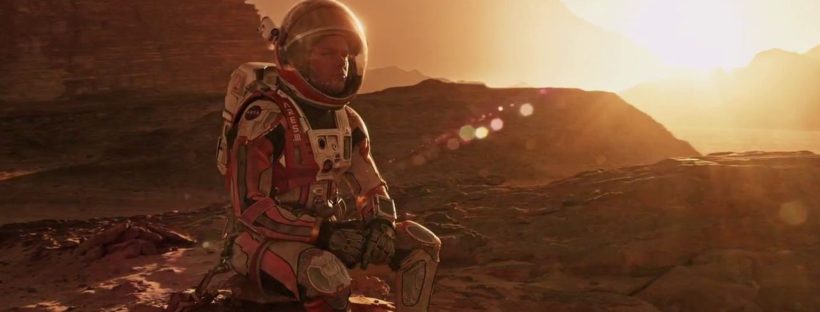 A series of improbable and unfortunate events leave an astronaut stranded on the Red Planet in Andy Weir‘s The Martian. The novel is a unicorn in fiction, the rare title that can impart scientific accuracy without losing readers who lack the education to follow along.
A series of improbable and unfortunate events leave an astronaut stranded on the Red Planet in Andy Weir‘s The Martian. The novel is a unicorn in fiction, the rare title that can impart scientific accuracy without losing readers who lack the education to follow along.
Less than a week into his team’s exploration of Mars, a sudden storm impales Mark Watney with an antenna, knocking him unconscious and destroying the monitors that relay his vital signs to his fellow scientists. Believing him to be dead, the crew leave without him. When Watney awakes, he’s alone on a desert planet, with no communications and no renewable source of food. In a series of daily logs, Watney relates how he plans to contact NASA, terraform a small corner of Mars, and survive until rescue arrives.
It goes without saying that the odds are stacked against the titular Martian. But Watney’s enduring sense of humor stands out against the blight of the rusty landscape, and endears him to the reader. If Watney has lengthy periods of despair in his isolation, he leaves them out of the story. What’s left is self-deprecation, tenacity, and a “fuck it, I’m going to die anyway” attitude when he’s forced by circumstance into dangerous acts.
More than anything, The Martian is a science fiction novel for people who don’t like science fiction novels. There are no aliens or super-advanced technologies. The novel is set so close to our own time that “the Seventies” still refers to the age of Three’s Company and Sanford and Son. Readers will delight in Watney’s dismay at being stuck on Mars with only ancient sitcoms, disco music, and the odd Agatha Christie novel — whether out of Schadenfreude or commiseration.
Make no mistake: The Martian is a technical novel. Every aspect of its science and mathematics — from Watney’s recipes for water and soil, to calculations about launches and interceptions — is accurate. Weir has written a novel for science nerds like himself, and it excels.
My rating: 4 of 5 stars
Read all my reviews and follow me on Goodreads!
